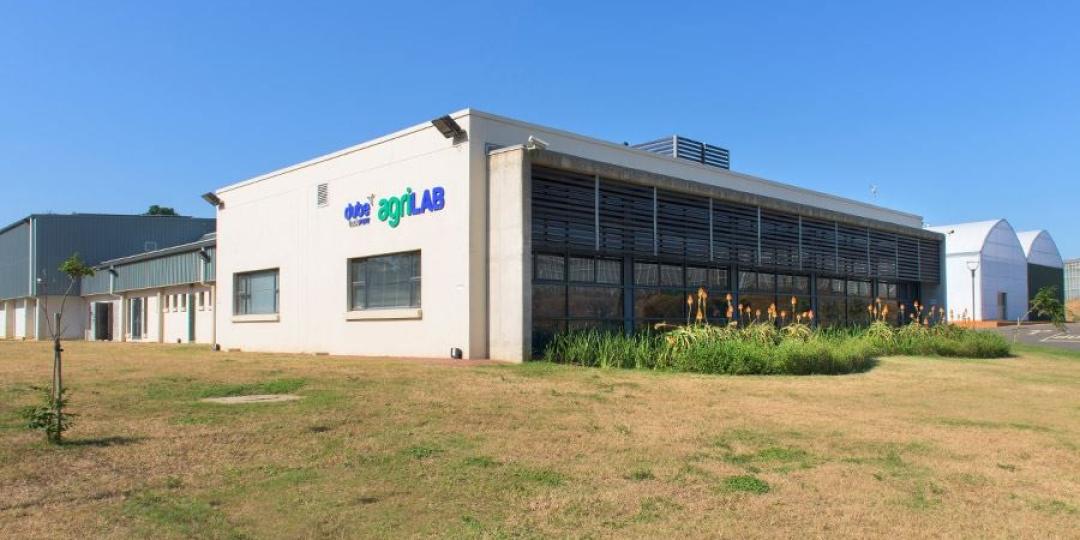Dube AgriLab has installed two separate active voltage conditioners and a power quality compensator – Reactive PQCR+, which helps to prevent damage to highly sensitive electronic equipment at the farm. This solution has resulted in the complete eradication of equipment failures due to voltage dips.
Dube AgriZone is Africa’s first integrated perishables supply chain and the most technologically advanced future farming platform on the continent. It is a high-tech agricultural development located at the Dube TradePort Special Economic Zone in Kwazulu-Natal.
The laboratory supplies high-quality, disease-free, true-to-type young plants through tissue culture under sterile conditions. This process ensures absolute consistency and repeatability of plants which, in turn, creates reliability for the plant propagation needs of the KwaZulu-Natal farming community. As the only commercial tissue culture laboratory in the province, Dube AgriLab currently has the capacity to produce more than three million plantlets a year, with a planned expansion set to boost its capacity to five million a year.
“To improve performance, a PCS100 AVC-20 power quality unit was installed in the hydroponics production line. Hydroponics is the process of growing plants in sand, gravel, or liquid, with added nutrients but without soil. This was followed by a second PCS100 AVC-40 unit. The second unit was combined with a power quality compensator – Reactive (PQCR+) solution to enhance power factor and energy efficiency of the electrical network in the Dube AgriLab,” says Sashlin Govender (Pr Tech Eng) from ABB South Africa’s channel partner Hamsa Consulting Engineers.

The second project was for the tissue culture laboratory at Dube AgriLab. Over a four-month period, data gathered from the PCS100 AVC-40’s event log reveal that the site experienced more than 166 power-quality events relating to voltage fluctuations and dips. Prior to commissioning the AVC, these events would have damaged sensitive electronic equipment and machinery, in addition to disrupting production at the laboratory.
“The client notes that there has been no damage to equipment or related production losses since the commissioning of the AVC,” discloses Govender, who worked closely with the client from Dube AgriLab on this project.

Prior to the installation of the ABB PQCR+ installation, a pre-commissioning power-quality study revealed that the plant ran at a very poor power factor under peak load conditions, with an average lagging power factor of 0,7. The study also revealed that there was a significant level of harmonic distortion contributing to the overall poor power quality and inefficiency of the plant.
Hence Hamsa Consulting Engineers proposed and implemented the PQCR+ with ABB South Africa. This solution provided seamless and instantaneous power factor correction, while also filtering out the harmful harmonics on the network. A post-commissioning power-quality study subsequently revealed that the plant now has an improved average power factor of 1, while there has also been a drastic reduction in harmonics. This will contribute to increased equipment lifespan, as well as reducing energy losses.


Power-quality events are displayed, indicating the type of event (sag/dip or surge) as well as the input voltage and AVC-40 output voltage % (corrected voltage %). The duration of the power-quality event is also indicated. The exceptional performance of the AVC-40 can be seen in Line 56:
Input residual voltage % during the power-quality event:
L1 – 78% (312 V)
L2 – 82% (328 V)
L3 – 86% (344 V)
Output voltage % during the power-quality event:
L1 – 100% (409 V)
L2 – 99% (405 V)
L3 – 100% (409 V)

The installation of ABB’s power quality solutions has protected highly sensitive equipment at this future farming platform. By providing clean constant power to the laboratory and reducing equipment to damage and production losses, it will help to secure the future plant propagation needs of the KwaZulu-Natal farming community.

Contact Busisiwe Molefe, ABB, Phone 010 202-5523, busisiwe.molefe@za.abb.com















